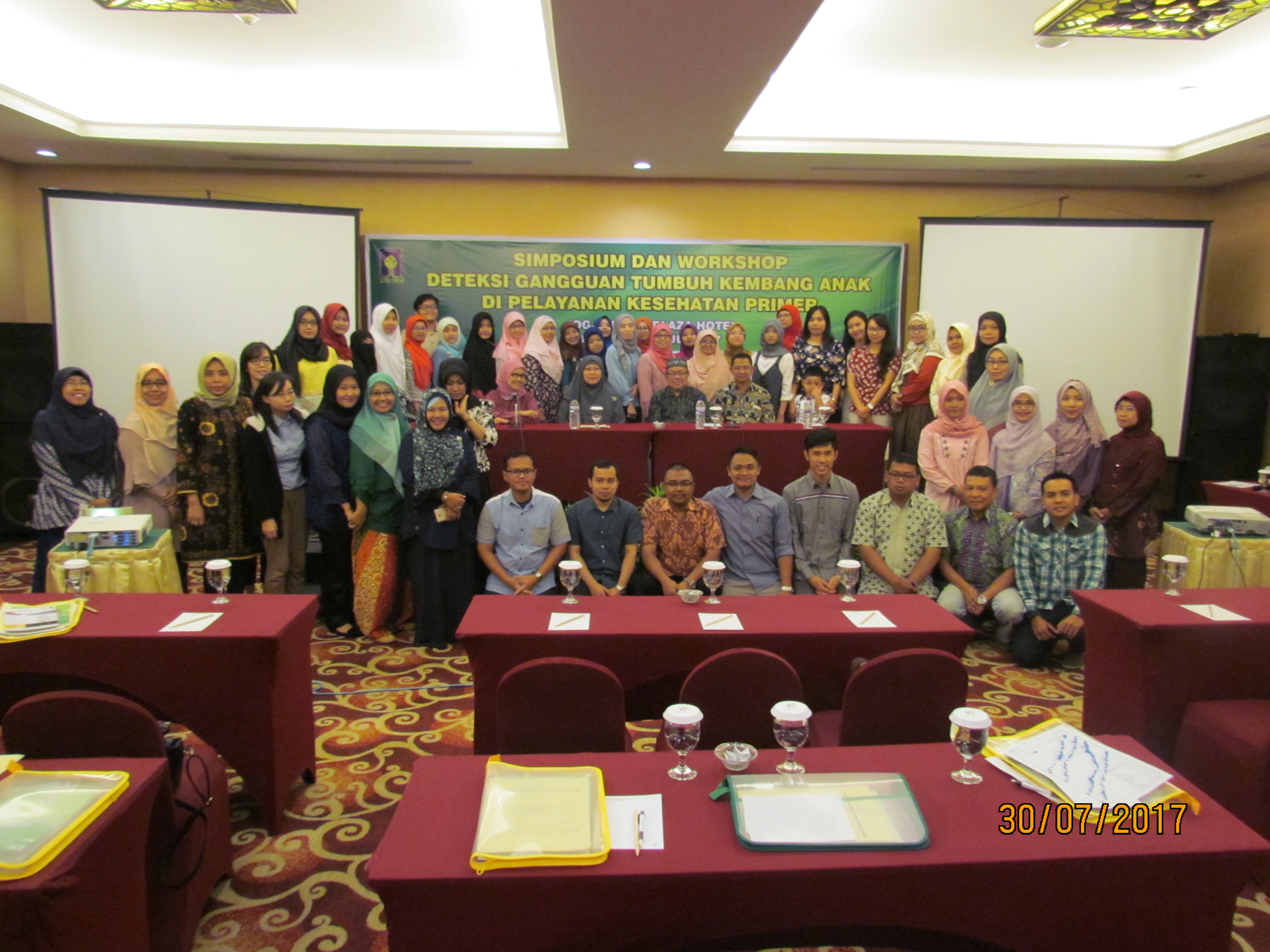[:en]Beware of Children's Growth Disorders[:en]Beware of Children's Growth Disorders[:]
[:en]
Yogyakarta, FK UII – The increasing number of birth defects in Indonesia makes parents also worry about this situation. It is appropriate for parents to worry about the health of their children from an early age. Even though as a parent, you must already know what to give to your baby so that his growth and development are not disturbed by providing adequate nutrition and affection. However, there are still many parents who do not know about the many disturbances to the growth and development of children that can be threatening at any time.
Therefore, through primary level health facilities, Faculty of Medicine UII held a "Symposium and Workshop on Detection of Disorders of Child Development in Primary Health Services" at Jogja Plaza Hotel, Sunday (30/07). The event started with a symposium. The symposium itself raised 2 main topics, namely normal development in children delivered by dr. Soeroyo Machfoeds, MPH, Sp.A(K) and developmental disorders and early detection delivered by dr. Mei Neni Sitaresmi, Ph.D., Sp.A.(K). After debriefing and asking questions, the event was filled with a workshop (parallel) regarding the use of tools for monitoring the development of KPSP and DDST as well as the use of tools for early detection of autism and GPPH accompanied by dr. Mei Neni Sitaresmi, Ph.D., Sp.A.(K) and dr. Tien Budi Febriani, M.Sc, Sp.A as the facilitator.
The activities, which are organized in the form of seminars and workshops, aim to increase the knowledge and skills of health workers in primary and general services. So that in the future this knowledge can be conveyed to the general public so that they can anticipate disturbances in the growth and development of their children.
Because as the nation's next generation, it is only fitting for all children of this country to receive health facilities such as health centers with a workforce that has qualified capabilities. So that there are no more physical and mental disabilities experienced by children from the womb to adolescence and even adulthood.
Farah/Tri[:in]
Yogyakarta, UII Medical Faculty – The increasing number of baby birth defects in Indonesia makes parents also participate with the State concerned. It's been reasonable if parents worry about the health of their son from an early age. Although as parents would know what has had to be given to their children so that their growth will not be disturbed by providing adequate nutrition and compassion. But there were many parents who didn't know a lot of interference on the growth and development of children which may be threatened at any time.
Therefore, through the primary-level health facilities, the Faculty of Medicine UII held a “Workshop on Detection Symposium and Grows Flower Children in Primary health care” in Jogja Plaza Hotel, Sunday (30/07). The event starts with a symposium in advance. The symposium itself raised 2 subject matters, namely the normal development of the children delivered by Dr. MP Machfoeds, H Soeroyo, SP. A (K) as well as the development and early detection of disorders submitted by Dr. Mei Neni Sitaresmi, Ph.d., Spa. (K). After questioning and prayer, the show is filled with workshops (parallel) on the use of tools for monitoring the development and use of the DDST and KPSP tools for early detection of autism and GPPH accompanied by Dr. May Neni Sitaresmi, Ph.d., Spa. (K) and Dr. Tien Budi Febriani, M.Sc SP., as facilitator.
The activities organized in the form of seminars and workshops aim to improve knowledge and skills in the service of primary health workers and the public. So the basic science will be presented to the public in order to anticipate disruptions on the growing swell of their children.
Because as the nation's next generation is already appropriate throughout the country get health facilities such as health centers with a workforce that has the professional skills. So no more mental as well as physical disabilities experienced by children from the womb to grown-up.[:]

